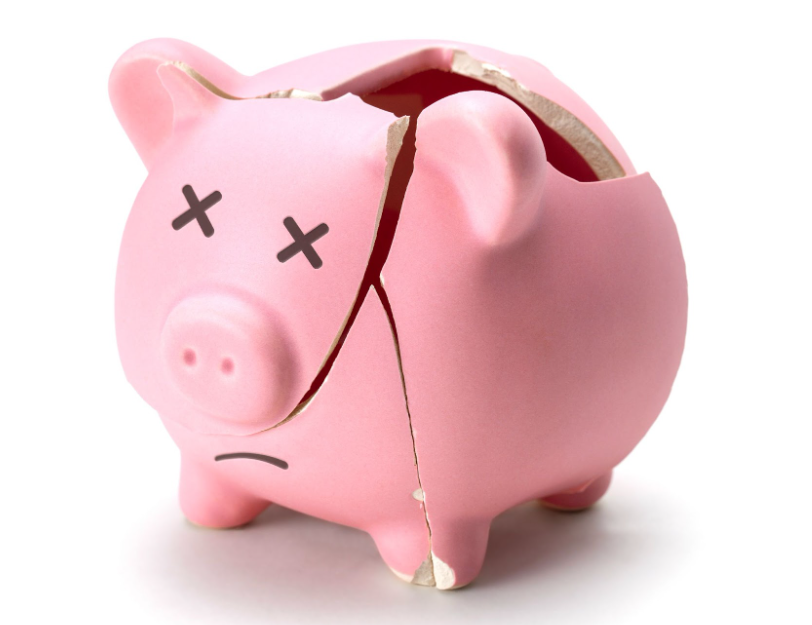
Are You Always Broke Before Payday? Here’s Why
There’s this phrase that sends a shudder down the spine of most working people – “living paycheck to paycheck”. But what does it mean? Ideally, it refers to a situation where an individual’s income is devoted to covering expenses, with nothing left to save or invest. This often leads to the uncomfortable position of running out of money before the next payday.
Reasons Why You’re Always Broke Before Payday
If you find yourself consistently broke before payday, you might be grappling with one or several of these issues:
- High Cost of Living: If you live in an area with a high cost of living, especially in many Canadian cities, your income might not stretch far enough to cover all expenses.
- Debt and Interest Payments: High-interest debt can deplete your income, leaving you short before payday.
- Lack of Budgeting: Not having a financial plan or budget can lead to haphazard spending, which often results in running out of money before the month ends.
- Overspending: This can be due to impulse buying, not differentiating between needs and wants, or simply needing to keep track of your expenses.
- Lack of Savings: Without savings, unexpected expenses can derail your financial plans and cause you to run out of money quickly.
Implications of Constantly Being Broke Before Payday
Constantly being broke before payday can have significant implications:
- Financial Stress: Always worrying about making ends meet can lead to stress, anxiety, and other mental health issues.
- No Emergency Fund: If you’re always out of money before payday, you may need an emergency fund. Not having an emergency fund leaves you vulnerable to unexpected expenses
- Potential for Debt Cycle: Lack of funds can lead to borrowing or credit card debt, which can initiate a vicious cycle of debt.
Breaking Free from the Paycheck to Paycheck Cycle

You don’t have to remain stuck in the paycheck-to-paycheck cycle. Here’s how to break free:
- Track Your Spending: Understand where your money goes. Tracking your expenses helps identify areas where you can cut back.
- Create a Budget: A budget is a plan for your money. It helps ensure your income covers your expenses and leaves room for saving and investing.
- Build an Emergency Fund: Aim to save at least three to six months’ worth of living expenses. This can cover unexpected costs and prevent the need for debt.
- Pay Down Debt: High-interest debt can drain your resources. Focus on paying off debts to free up more of your income.
- Increase Your Income: Consider ways to boost your income, such as a side job, selling unused items, or seeking a raise at your current job.
Canadian Resources to Help Manage Your Finances
There are several Canadian resources available to help manage your finances:
Credit Counselling Services
When debt feels overwhelming, one can turn to EmpireOne Credit for counselling. We offer free consultations to help individuals manage their debt and regain financial control. Our services include personalized counselling sessions, where debt experts assist with creating a feasible budget, forming strategies to tackle debt, and guiding through the process of debt relief programs. Leveraging these services can be crucial for financial stability and debt reduction.
Government Assistance Programs
The Canadian government operates several assistance programs to provide financial aid for those in need. These programs cover a wide range of areas, including housing, childcare, disability, old age, and low income, among others.
Researching these programs thoroughly is essential to understanding which ones you qualify for based on your circumstances. Eligibility can depend on income, family size, and location. Once identified, these programs could offer relief, from direct financial aid to subsidies or tax credits.
Financial Literacy Resources

Knowledge is power, especially when it comes to managing your finances. The Financial Consumer Agency of Canada offers various tools and resources to improve your financial literacy.
These resources, often available online, include educational articles, financial calculators, budget planners, and workshops, all intended to help individuals understand complex financial topics, such as interest rates, investments, loans, and more. By enhancing your financial literacy, you can make more informed financial decisions, enabling you to budget effectively, avoid or reduce debt, and plan for a secure financial future.
You can also follow our blog for financial advice and tips to help enhance your finances and manage debt better.
Conclusion
Living paycheck to paycheck is stressful, but it’s possible to break the cycle. By understanding why you’re always broke before payday, taking steps to address these issues, and utilizing available resources, you can work towards financial stability and independence. Remember, improving your financial health is a journey; every step, no matter how small, brings you closer to your goal.
If the pressures of living paycheck-to-paycheck have left you with multiple debts, EmpireOne Credit is ready to lend a helping hand. We can assist you in turning over a new leaf, enabling you to reduce your debt by as much as 80% with an immediate stop to interest. Call us at (416) 900-2324 to schedule a free consultation. Being debt-free feels good!





